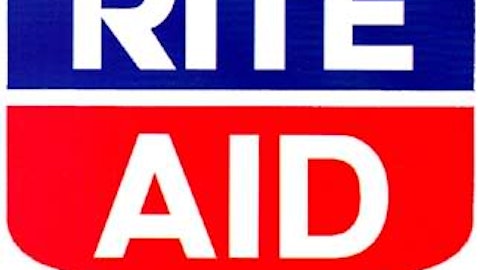U.S. policymakers’ failure to extend payroll tax cuts for the average U.S. household is compromising consumer confidence and may affect top-line growth at retailers. While only the wealthiest 0.7% of Americans are paying higher income taxes, according to The New York Times, more than 70% of the population is taking home 2% less pay thanks to the expiration of payroll tax cuts.
The impact from the tax isn’t obvious yet but retailers are bracing for a potential slowdown in consumer spending. In January, Target Corporation (NYSE:TGT) announced a near 30% increase in its net retail sales to $5.9 billion and a 3.1% increase in its comparable store sales. Customers were mostly responding to excess inventory from the holidays, however, and taking advantage of the steep price cuts.
Meanwhile, the results come on the heels of a disappointing December sales performance when Target’s comparable store sales were essentially flat. In the forthcoming 4Q earnings results, Target expects its performance will be limited to the lower end of its projected profit range.
Target’s 4Q Projections (company reports on Feb. 27)
| EPS Range: | GAAP EPS Range: |
| $1.64 to $1.74 | $1.45 to $1.55 |
*Target attributes the contrast in the regular and GAAP earnings to the impact of expenses tied to the retailer’s expansion into Canada.
Where’s the Catalyst?
Shares of Target are trading at about 5% below their 52-week high levels. Year to date, shares are higher by about 6%. Despite the global economic headwinds, Target and other discount retailers continue to operate in the value market, which is what consumers in the low-to-middle income range need.
A challenge appears to be that there is no near-term catalyst expected to drive sales at the discount retailers notably higher any time soon. This isn’t exclusive to Target, which incidentally just unveiled a partnership with Justin Timberlake that rewards consumers for purchasing the pop star’s CD at the retailer. The lack of near-term drivers seems to be apparent among the sector — including Wal-Mart Stores, Inc. (NYSE:WMT) — and corporate America more broadly.
More than four dozen companies in the S&P 500 intend to grow spending by a mere 2% in 2013, according to The Wall Street Journal, which is disheartening for growth investors. In the first three quarters of 2012, corporate spending was increasing an average of 8% on top of double-digit growth in 2011.
Shares of Wal-Mart rose 17% over the past 13 months. JPMorgan Chase & Co. (NYSE:JPM) analysts recently downgraded the stock to neutral suggesting that in light of the reinstated payroll tax the “low hanging fruit” for shareholder profits have vanished, according to a recent CNBC interview.
Barring any unexpected dividend hike or some other catalyst, shares of Wal-Mart could be the most vulnerable to the recent payroll tax in that the stock may be flat in the near term. The average income for Wal-Mart shoppers is in the $40,000 range, and the 2% tax hike from 4.2% to 6.2% is likely to hit at the heart of these households, which could in turn hurt Wal-Mart’s sales. Meanwhile, shares of Wal-Mart are more pricey than Target on a trailing EPS basis.

Show Me the Growth
Consumers at Target and big-box retailer Costco Wholesale Corporation (NASDAQ:COST) have higher average incomes, which suggests that the higher tax might not hurt top-line growth as much at these retailers. For its part, Costco reported a 7% increase in its January net sales to $9.35 billion. Comparable store sales increased 3% and 4% for U.S. and international operations, respectively.
Costco recently expanded into Gwangmyeong, Korea where it opened up a new location in mid-December. By law, big box retailers are required to close the brick-and-mortar locations two Sundays each month. Based on an update provided by Costco Today on Twitter, sales on the opening day for this location were $1.4 million.
In all of fiscal 2013, Costco plans to open a total of 30 new retail locations, approximately half of which are in the U.S. with the other locations spread across Canada, Australia, Mexico and throughout Asia. Over the past three months, the stock has advanced approximately 6%.
For its part, Costco seems to be rolling with the economic punches rather well. That doesn’t take away the fact that in addition to a higher payroll tax, Americans are also paying more for gasoline these days. The price for gas has increased 7% year-to-date to an average of $3.54 per gallon, according to The Wall Street Journal, which represents yet another headwind for consumers and retailers alike.
The article Retailers Roll With the Punches originally appeared on Fool.com and is written by Gerelyn Terzo.
Copyright © 1995 – 2013 The Motley Fool, LLC. All rights reserved. The Motley Fool has a disclosure policy.




